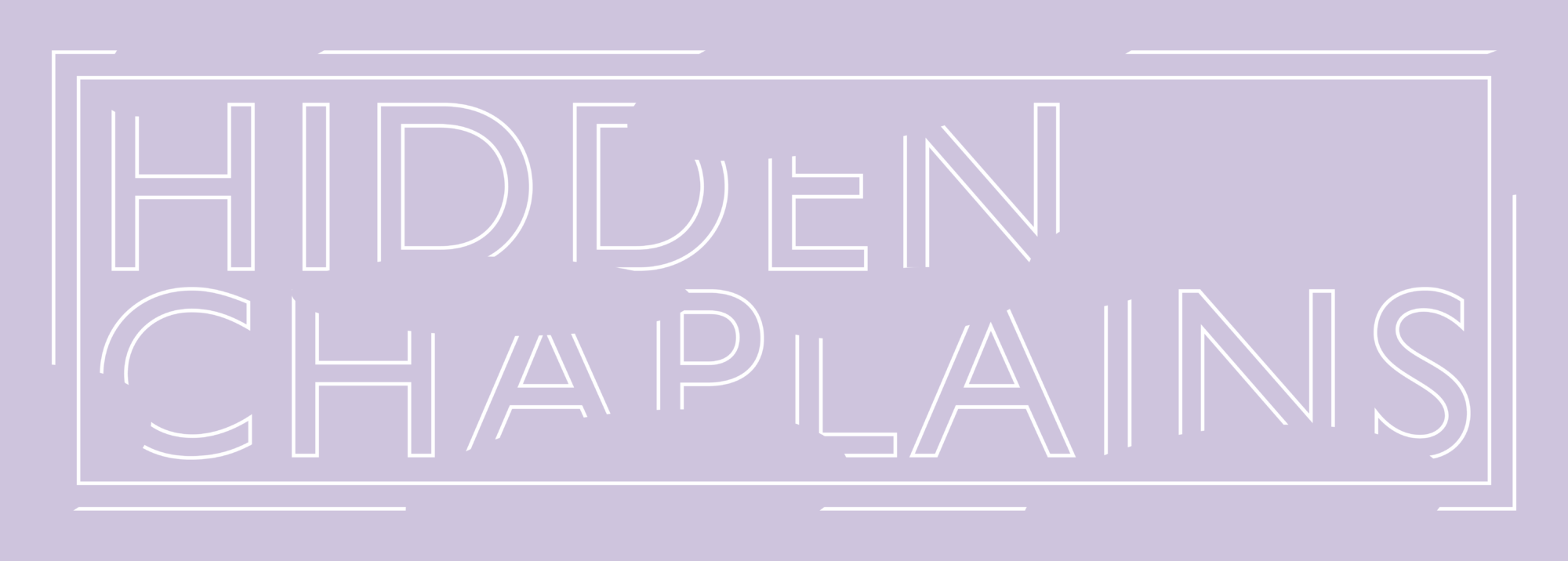About Us
Hidden Chaplains is a project that invites students to identify those people on campus who change their day in small but meaningful ways through regular interaction; not their fellow students or professors or senior administrators or counselors, but rather the dining hall worker, secretary, or facilities staff who smile at them, ask them about their day, engage them for a moment. Students “nominate” a hidden chaplain by reflecting on their interaction and its meaning. The student reflections are invariably diverse and remarkable. Everyone nominated is invited to a dinner with the student nominators, and is asked to bring their own hidden chaplain, with the notion that they too have people who change their day in similar ways.
How We Started
Can we make a university compassionate? This question, a chance interaction, and a conversation between a student and chaplain led to the Hidden Chaplains project. Matt Weiner, a Dean in the Office of Religious Life was swiping in at the Whitman College Dining Hall when he started talking with the clerk who oversees student entrance. As they talked he noticed that the clerk interacted with every student who came through: all students said hello to her (her name was Catalina), and she knew their names and had small meaningful interactions with them. Matt shared this story with Kyle Berlin ’18, with whom he met regularly in the mornings with his three year old son Louis. Louis was especially interested in the new roof being put on Murray Dodge Hall, and so their chaplaincy sessions would often revolve structurally around interaction with roofers, questions about various pieces of equipment and the particular tasks taking place that day. The above question derived from conversations with Prof. Charles Hallisey at Harvard Divinity School served as a framework for much of their discussions during Kyle’s time at Princeton, and more directly concerned ideas around social justice, service, agency, and what it means to thrive as a student at a university. Kyle knew the clerk Matt was referring to, Catalina, smiled at the story, and named other hidden chaplains, and as they thought about this incident they realized that most every student at Princeton had a person or two who served this informal, almost hidden, and yet very important role in their lives.
As a result of these conversations, they gathered a group of students who could help investigate the idea further, and decided upon the above format, to include both a venue for public acknowledgement and celebration, and the opportunity for serious reflection. Why were such relationships, though particular in example, nearly a universal part of a student’s experience? Why did students smile and say the name of their ‘hidden chaplain’ upon being asked if they had one. Why was something so small and informal so very meaningful? Why was it something never talked about? Why did staff commit regularly and throughout their days to a practice that was not part of their job description? What does it say about the nature of informal interactions, the nature of kindness, and the experience of students and workers on campus?
In summary, Hidden Chaplains is an exercise that hopes to help students notice and appreciate the compassion around them, to create an opportunity for both private and public gratitude, to notice and deepen informal friendships. It hopes to investigate further questions about how compassion manifests within institutions in ways that complement questions about efficiency and justice. Finally, it draws attention to ideas of chaplaincy being considered within secular institutions.

